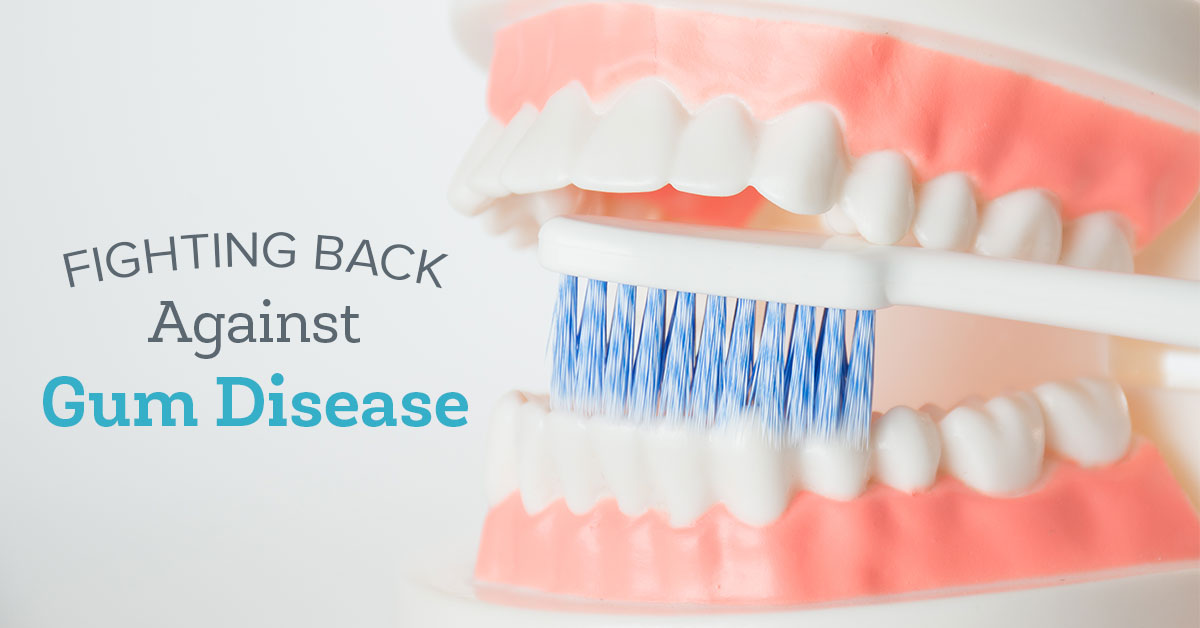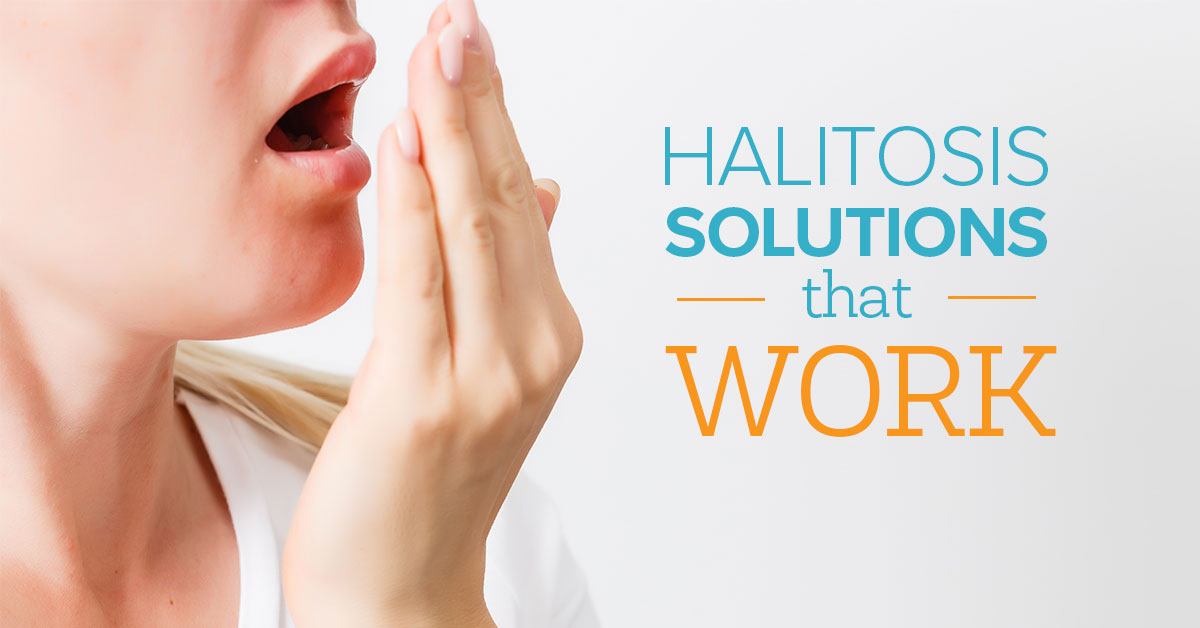You’ve heard the buzz about “oral microbiome.” But what exactly is it? And more importantly, how can you tell if yours is healthy? Your smile will give you the answer.
If you often have a thick coating of sticky plaque, bad breath, or problems with decay or gum inflammation, that means the microbiome in your mouth needs some extra TLC … ASAP! And a great place to start is right here with these 6 easy ways to balance your oral microbiome.
What Is the Oral Microbiome Anyway?
Oral microbiome refers to all the bacteria found in the mouth, from the tongue and the teeth to the gums and the cheeks. According to the National Institutes of Health, there are 700 species of bacteria that can inhabit the mouth, and every person’s oral microbiome is unique.
This colonization of bacteria begins at birth and continues to evolve throughout your life. It’s based on many factors, from your mom’s oral health to when your teeth first came in to your oral habits, diet and lifestyle.
This “community” of microorganisms has an important job to do. The oral microbiome is responsible for transporting minerals from saliva to the teeth (remineralization), carrying oxygen to the gums and soft tissue, and neutralizing harmful free radicals.
When we hear the word “bacteria,” we often associate it with a negative. But just like the gut microbiome (its own ecosystem), there are good bacteria and bad bacteria at play. Healthy bacteria help protect our smiles from decay, while harmful bacteria can lead to cavities and gum disease.
Keep in mind, it’s not really about individual bacteria – it’s about how they act within the environment as a whole. If the microbiome is healthy and balanced, much of the “bad bacteria” implicated in tooth decay can be completely benign.
However, when the balance of the mouth microbiome is out of whack – more bad bacteria than good bacteria – that’s when problems arise, like bad breath, bleeding gums (an early sign of periodontal disease), mouth ulcers and decayed or sensitive teeth.
The Microbiome in Your Mouth Can Influence Your Entire Body
Because the mouth is the gateway to the rest of the body, the health of your smile can directly influence your overall health. Periodontal disease is marked by infection and a buildup of harmful bacteria on the gums. When you swallow this oral bacteria, it enters the bloodstream and begins to circulate throughout your whole body.
Even though the body has a lot of systems in place to protect from these germs, it’s not foolproof. That’s why gum disease is linked to a higher risk of stroke, heart disease, dementia, premature labor and low birth-weight babies.
Conversely, diabetes can negatively influence oral health. In fact, 1 in 3 diabetics has periodontal disease. Diabetes makes periodontal disease worse by promoting an overabundance of bacteria in the mouth, and periodontal disease makes diabetes worse by causing blood sugar to rise. On and on the cycle goes. That’s why diabetics need more frequent visits to the dentist and really need to keep their blood sugar under control. (Check out these 5 dental care tips for diabetics.)
6 Simple Microbiome-Balancing Strategies
1. If You’re a Smoker, Quit
Research performed by Ohio State University revealed that smokers have more chaotic and diverse mouth microbiomes, making them more susceptible to damage from harmful bacteria. A smoker’s mouth will essentially “kick out” good bacteria and open the door to pathogens, which are organisms that cause disease.
In the OSU study, researchers compared the mouths of 15 healthy nonsmokers to 15 healthy smokers. They took gum swabs one, two, four and seven days after each participant received a professional dental cleaning. Their aim was to see which bacteria were present in their plaque and how their bodies would respond to it.
Here’s what they found: For the non-smokers, bacterial communities regained a similar balance of species to the communities that were scraped away during the cleaning. Disease-associated bacteria were mostly absent, and low levels of cytokines (molecules that play an important role in immune system function) indicated that the body was not treating the helpful biofilms (bacteria colonies) as a threat.
However, it was a much different story for the smokers. Within 24 hours of the professional dental cleaning, smokers’ mouths were already getting colonized by harmful pathogens.
Smokers also had higher levels of cytokines, indicating that the body was mounting a defense against infection. When this immune response occurs, the gums get red and swollen. This is known as gingivitis, the earliest stage of periodontal disease. Fortunately, gingivitis is reversible. However, once severe periodontitis sets in, which is where the bone structures of the teeth are damaged, it is not reversible.
Here’s what’s even more concerning. The types of cytokines in smokers’ gum swabs revealed that their bodies were treating even healthy bacteria as threatening.
It stand to reason then that smoking disrupts the normal communication between healthy bacteria and their human hosts.
2. Pay Close Attention to Your Diet
If you indulge in sugary food and drink on a regular basis, this can make for an unbalanced microbiome in your mouth because it shifts the environment from slightly alkaline (which is what a healthy mouth should be) to a more acidic pH. An acidic environment allows certain bacteria to thrive, such as streptococcus mutans, which is a significant contributor to tooth decay.
But here’s what many people aren’t aware of: refined carbohydrates are just as bad as sugar!
What exactly is a refined carbohydrate? This umbrella term describes refined grains that have been stripped of bran, fiber and nutrients during the manufacturing process. Examples of refined carbs include white bread, pizza dough, crackers, chips, pasta, pastries, white rice, and pretty much any processed snack.
Starches made from white flour linger in the mouth and then break down into simple sugars. Bacteria feed on the sugars and produce acid, which erodes enamel and contributes to tooth decay.
Best Microbiome-Balancing Food & Drink
- Cheese
- Milk
- Fiber-rich fruits & veggies
- Green & black tea
- Nuts
- Legumes
- Yogurt
- Sourdough bread
- Miso
- Tempeh
- Sauerkraut
- Kombucha
- Filtered water
As a general rule, a healthy alkaline diet should include 70% alkaline foods like veggies and legumes and 30% acidic foods like meat and carbs. If budget allows, organic is best.
3. Find Healthy Ways to Reduce Stress
Stress is an unavoidable part of life, and it’s not always a bad thing. (It’s likely saved many of our ancestors from run-ins with wild animals.) This fight-or-flight response can help increase our awareness in tough or tense situations and help us to act quickly. The problem is when we’re in a CONSTANT state of stress or anxiety. In addition to impacting our overall health, too much stress can affect our oral health microbiome.
The biggest issue is how stress dries out the mouth, decreasing saliva flow. Saliva is 98% water, and the other 2% is made up of mucus, proteins, minerals, electrolytes, antibacterial compounds and enzymes. It also happens to be our body’s natural defense against decay and bad breath. Harmful bacteria flourish in a dry environment.
When we’re constantly short of saliva and dealing with dry mouth (xerostomia), we’re susceptible to harmful bacteria taking over in our mouths, acid attacks and eventual tooth decay. A dry environment also causes Volatile Sulfur Compounds (the compounds responsible for most cases of halitosis) to quickly multiply, making the breath worse.
Another oral health problem associated with stress is when we start clenching or grinding our teeth (bruxism). This wears away our enamel. Usually this happens when we’re asleep, but many of us are guilty of clenching our jaws during stressful work situations. (HOW DARE SHE SEND ME AN EMAIL IN ALL CAPS!)
As the enamel gets worn away from the grinding and clenching action, the sensitive dentin underneath gets exposed, and that’s when tooth sensitivity begins. This sharp, sudden pain can be triggered by sticky foods, hot food or drink, or cold food and drink. Sometimes it hits just from breathing in cold air. Not fun!
You may also find that your jaw or neck muscles ache from all the pressure of grinding or clenching. And yes, it IS a lot of pressure! Consider the fact that chewing food normally puts around 20 to 40 pounds of pressure on the teeth. Grinding, however, can be 250 pounds or more!
No surprise then that many people who clench or grind end up with cracked teeth or damaged dental work. A custom mouth guard can work wonders in saving your teeth (and your wallet) if you’re a tooth grinder or clencher, so be sure to discuss this option with your dentist.

4. Get Moving … But Do So Wisely
When we think of exercise, we usually just think about the benefits for our hearts and waistlines. But surprisingly, the improvement in circulation also affects our oral health.
Blood supply is how organs are nourished and protected, and restricted blood supply is linked to disease. So what does this mean for our teeth? Blood supply ends in the capillaries within the dental pulp. If the blood supply is restricted, tooth decay is more likely to occur.
A study posted in the British Dental Journal revealed that people who regularly worked out were 54% less likely to develop periodontal disease. And those who exercised just a few times a week had a 33% lower risk of periodontal disease versus inactive people.
Keep in mind though, many athletes ARE at a greater risk for cavities. How can this be when we just learned about the benefits of circulation?
Two big factors are to blame.
The first is sports drinks. Many people simply aren’t aware of how acidic these drinks are. Acid is the root cause of decay, and downing sports drinks all the time constantly bathes the teeth in acid, which weakens enamel and affects tooth color. A better alternative is water. (Don’t worry about not looking cool … healthy teeth are cool!) But if you just gotta have a sports drink, swish afterwards with water to help counteract the acid attack.
The second factor is mouth breathing. Mouth breathing during intense exercise causes the mouth to dry out. Remember: a dry mouth is the perfect environment for harmful bacteria to quickly multiply. Staying hydrated (with water) and trying to consciously nose breathe more often can help with dry mouth.
5. Switch to an SLS-Free Toothpaste
It probably comes as no surprise that good oral care is essential for a healthy microbiome in your mouth. But here’s what IS a surprise: some dental products have ingredients that can work against your delicate mouth microbiome, throwing it off kilter.
One such ingredient is sodium lauryl sulfate (SLS). This synthetic detergent is a foaming agent. That’s why it’s used in soaps, laundry detergents, and yes, even toothpastes. Just like we associate certain scents with “clean,” we often associate foaming action with cleaning too. A nice lather must mean it’s working, right?
Well, here’s the problem many people have with sodium lauryl sulfate: it can cause tissue irritation and inflammation, tissue sloughing, and canker sores, all things that work against a happy oral health microbiome.
About 20% of people get canker sores on a regular basis, and women are much more likely than men to suffer from this annoying and painful problem.
How strong is the correlation between canker sores and SLS? In an SLS study of 10 patients with recurrent canker sores (average of 17.8 canker sores in 3 months), their number of canker sores dropped to 5.1 after brushing with an SLS-free toothpaste for 3 months.
It’s one of the many reasons dentists recommend Oxyfresh Lemon Mint Toothpaste. This SLS-free toothpaste is gentle on tissue and enamel, infused with a refreshing burst of natural essential oils, and exclusively formulated with Oxygene® and zinc to neutralize bad breath and the bacteria implicated in tooth decay. It’s also pH balanced to support a healthy oral microbiome.
6. Avoid Alcohol-Based Mouthwash
Alcohol-based mouthwash formulas are often marketed as a genius way to “kill the germs!” Here’s the problem, though: in the process, alcohol dries out the mouth, which disrupts the balance of the oral health microbiome.
This can make existing dental conditions worse. For example, many people use mouthwash as a way to fight a bad breath problem. And while they may feel an initial freshening, ironically, their breath gets worse shortly thereafter because of the drying effect of alcohol.
The ensuing cycle of swishing/drying/repeat can damage healthy tissue, greatly affecting the ecosystem in the mouth. And once gum tissue is damaged, swishing with alcohol, which stings, can become downright unbearable.
Save your smile with Oxyfresh Lemon Mint Mouthwash. This unique microbiome-balancing rinse is free of drying alcohol, staining dyes, and irritating sodium lauryl sulfate. Instead, you’ll find only the good stuff like hydrating natural essential oils and Aloe vera, plus a patented combo of 2x the Oxygene® and zinc for the most irresistibly fresh breath you’ve ever had. Oxyfresh Lemon Mint Mouthwash is safe for the whole family and ideal for anyone with halitosis or periodontal disease.
Did You Know?
In a double-blind, 12-month clinical study of 50 patients with periodontal disease, Oxyfresh Lemon Mint Toothpaste and Mouthwash beat the popular “big boy” brand in improving gum health.
Patients Who Used Oxyfresh Lemon Mint Toothpaste & Mouthwash
Results after 12 months:
- 76% improvement Gingival Index
- 79% plaque reduction
- 44% less harmful bacteria
Patients Who Used Store Brand Toothpaste & Mouthwash
Results after 12 months:
- 70% improvement Gingival Index
- 71% plaque reduction
- 34% less harmful bacteria
And what’s amazing about Oxyfresh Lemon Mint Toothpaste and Mouthwash is they do it without the junk. No dyes, alcohol or SLS! Just safe, proven ingredients you can trust for a happier, healthier smile.
P.S. Why stop with just the health of your mouth microbiome? You can get your gut microbiome in better shape too with probiotics. If you’re curious to know more, check out these 5 secret health benefits of probiotics.




